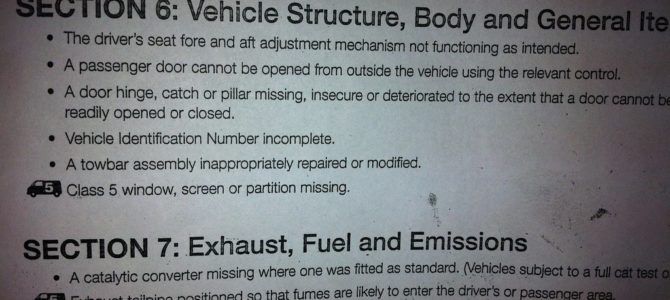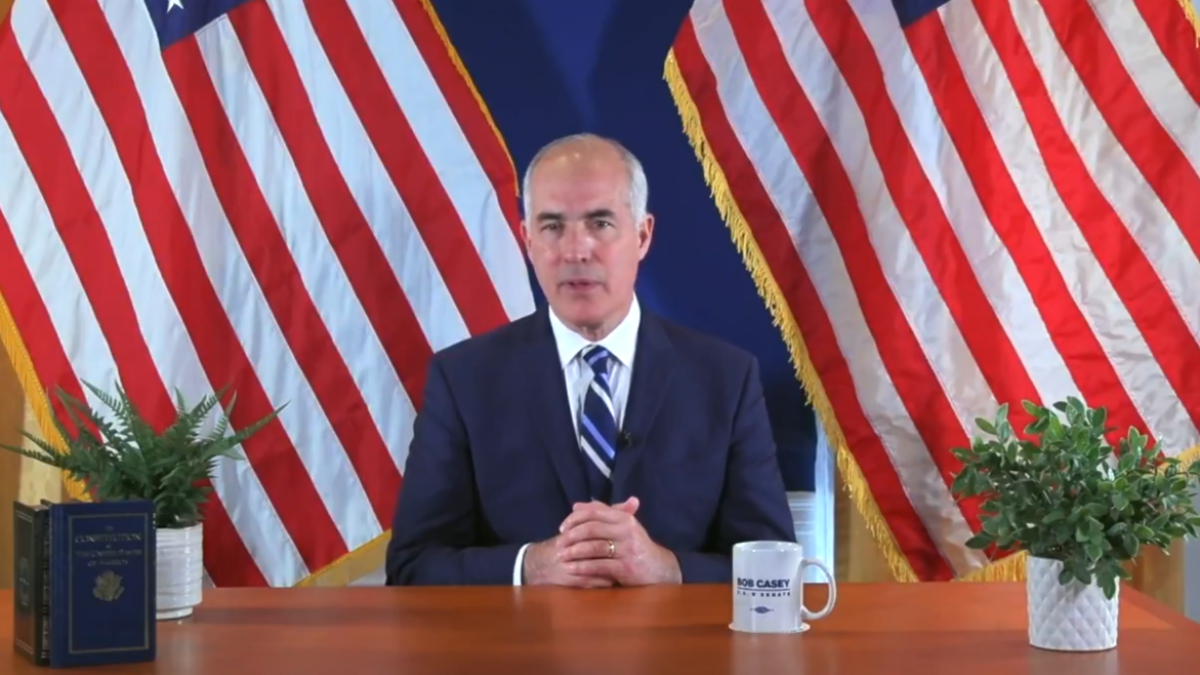
"VOSA MOT regulations on seats"by DrJohnBullas is licensed under CC BY-NC-ND 2.0
Idaho Gov. Brad Little has the opportunity to snap his fingers to bring about a dramatic deregulation agenda, but there’s little to suggest the governor will take full advantage of the situation. Through the past two weeks, conservative and libertarian publications have gushed as they reported that Little, a first-term Republican in a conservative stronghold, has the chance to reset his state’s regulatory framework.
Some called it a revolution. Some dubbed it a reset. Some hoped for Little to snap his fingers and make half of the state’s regulatory code, which fills in legal gaps created by statutes, disappear. What’s likely to occur is far less thrilling.
Before we get to what’s unfolding in Gem State, however, let’s talk about how all this happened.
State Lawmakers Review New Regs Every Year
A provision in the Idaho constitution lets lawmakers review new regulations written by executive agencies. Each year, the legislative session starts with a review, which usually lasts two to three weeks.
This review power is important, as it empowers lawmakers to keep a close eye on agency activities and protect taxpayers from tomfoolery. A couple of years ago, for example, the state’s tax agency decided to clear some ambiguity in Idaho statutes regarding cloud computing. That somehow led the agency to impose a 6 percent sales tax on services like Netflix, Hulu, and Spotify.
Idaho’s review process brought that decision to light. Legislators decided the agency’s unilateral tax hike didn’t reflect their will, so they passed a bill to repeal the regulation.
Earlier this year, the Idaho House and Senate bargained with each other over ideas to improve that process. Republican House members sought to give each chamber the power to reject new regulations. Currently, a proposed regulation stands even if it receives approval from one legislative body and not the other.
The gamesmanship turned into a stalemate in late March, and House leadership took a hostage: the yearly bill to reauthorize all state regulations. The Senate moved not an inch. Eventually, both bodies adjourned without passing the bill to reauthorize the rules. That means that when the clock strikes midnight on June 30, 2019, the state’s rules will vanish.
Well, for a split second. Little announced last month that he will reinstate most of the regulations at the beginning of June. Little’s announcement ensures there’s no gap in the state’s regulatory authority, but the rules will still need legislative approval next year.
Turn an Accident Into an Opportunity
My boss at the Idaho Freedom Foundation, Wayne Hoffman, praised legislators for the inaction. Hoffman wrote that the spat had created a fantastic opportunity for Little and legislators to take a hacksaw to burdensome, outdated regulations.
“Gov. Brad Little’s administration will need to reinstate each regulation, one program at a time, hopefully leaving a lot on the cutting room floor,” Hoffman explained in a post-session missive. “The reinstatement, or better still, elimination, of regulations could be Little’s chance to shine, offering his administration a chance to leave a mark on Idaho’s regulatory landscape.”
That reinstatement will occur between now and January. On Monday, Little’s administration will publish a list of rules it will let expire. In June, the administration will re-propose all the regulations it sees fit to keep. Then, during the 2020 legislative session, lawmakers will take on the gargantuan task of examining whatever remains from the original 8,200 pages of state regulatory code.
Little has positioned himself as someone who will create jobs through dismantling regulation. His second executive order, signed in January, directed executive agencies to identify two regulations to repeal for every new regulation proposed. That was a good start.
“Excessive regulation at all levels of government can impose high costs on businesses, inhibit job growth, and impede private sector investment,” Little said in the order.
Little has all the right tools to enact a complete deregulation agenda. Overseeing the administration’s regulatory review process is Idaho Division of Financial Management chief Alex Adams, a free market disciple who, when serving as executive director for the Idaho Board of Pharmacy under the previous administration, cut the board’s regulation book by more than half.
Little enjoys a Republican supermajority in the statehouse, another crucial fact that could allow him to go on a cutting spree through the state’s more than 8,200 pages of agency regulations.
The governor hasn’t offered details about which rules he might slash, but every sign suggests he won’t act boldly, choosing instead to merely trim deadweight that should have been cut years ago.
Spring Cleaning on a House that Needs Major Repairs
Adams said in an interview Friday that the governor’s office plans on using this situation as “a chance to do some spring cleaning.” The state’s regulatory code is burdened by some regulations, he added, that are “clearly obsolete, outdated, or unenforceable.”
“Some rules have not, for better or worse, been properly maintained,” Adams added. Adams boasted that the code will be slimmer, trimmer, and easier to comprehend on the other side of the process. As Adams said, spring cleaning. But that’s is not the same as starting fresh, which would be a far more serious improvement.
The Idaho Department of Health Welfare said late last week that it planned to cut more than 196 pages, or 12 full chapters, from its regulation book. An Idaho Freedom Foundation review of the planned cuts shows the agency identified a number of duplicative or never-used rules for Little’s shredder.
Cutting down regulatory bloat is always helpful, but will it benefit average Idahoans, who are likely unaware that these regulations exist in the first place? Adams believes so. He said the state’s regulation book on logging boasts an agonizing 15 chapters. If things go according to plan, he said, loggers will soon be able to review one slim chapter of rules to make sure they comply. That would cut down on compliance costs for businesses, allowing them to cut their prices for consumers or raise pay to employees, both, or any number of other things.
But Little could do more and shock Idaho’s political sphere by taking more dramatic steps, a path that could end some programs that have long vexed Gem State conservatives. Little could, say, pull Idaho out of the Common Core curriculum and testing mandates, which were adopted through legislative rule, not statutory changes, in 2011.
Were he to take that step, Little would follow Florida Gov. Ron DeSantis in taking executive action to drop Common Core standards. Earlier this year, DeSantis, also a first-time Republican governor, directed his state’s education department to slash Common Core rules and develop school standards that better reflect the needs of Florida pupils. That’s a longshot, but we can still dream.
Something Is Better than Nothing, But Not Really Visionary
Some legislative conservatives remain hopeful that the review process can lead to immediate, substantive changes. Rep. Heather Scott, a libertarian-minded Republican from North Idaho, tried to rally her followers in a lengthy video posted to social media last week. Scott, who sends out monthly regulation reports to her email list, encouraged viewers to examine as many rules as possible in the upcoming months.
“Normally, you wouldn’t have an opportunity to review all 8,200 pages of rules,” Scott said. But, she added, “This is your opportunity to engage the executive branch and really make a difference.”
Reached via phone, Scott said she plans to take a magnifying glass to the reauthorized education and health and welfare rules in the 2020 session. She characterized those sections of the regulatory code as “bloated.” Others see the situation as a chance to bring long-term changes to the rules review process itself, if not major, costly regulations.
House Majority Assistant Jason Monks, a Republican from Meridian, wonders if the state should regularly undertake a similar complete reauthorization process.
“We should always be looking at things to see if they are still applicable,” Monks said in a phone interview. “Everything should be looked at on a regular interval.”
Monks, a small business owner serving his third term, doesn’t think this undertaking will deliver anything close to revolutionary changes. Instead, he hopes that House members and senators will find a path forward to give each legislative body the power reject rules moving forward. That, he believes, will increase legislative oversight of executive agencies, which will eventually lead to better outcomes for all Idahoans.
“Will it change the world?” he asked rhetorically. “No. But it will make our rules better.”












